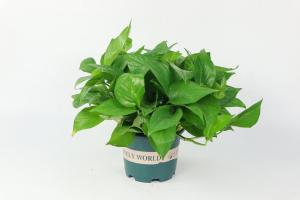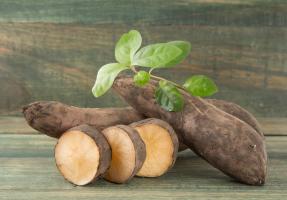Is It Safe to Plant in Plastic Pots?
Plastic pots are a popular choice for gardeners, thanks to their affordability, durability, and versatility. However, some people worry about the safety of planting in plastic pots. In this article, we’ll explore whether or not it’s safe to plant in plastic pots.
What Are Plastic Pots Made of?
Plastic pots are typically made from one of three types of plastic: polyethylene, polypropylene, or polystyrene. Polyethylene is the most commonly used plastic for plant pots. It’s a lightweight, strong, and flexible plastic that’s resistant to cracking, splitting, and fading. Polypropylene is a bit more durable than polyethylene and can withstand higher temperatures. Polystyrene is the most brittle of the three plastics and is best used for smaller pots.
Are Plastic Pots Safe for Plants?
Yes, plastic pots are generally safe for plants. They don’t release any harmful chemicals or toxins that can harm plants or humans. However, it’s important to choose high-quality plastic pots that are free from any chemicals or additives that could leach into the soil and potentially harm the plants. Look for pots that are labeled as “food safe” or “BPA-free.”
Can Plastic Pots Affect Soil Quality?
The quality of the soil in a plastic pot can be affected by a number of factors, including the size of the pot, the quality of the potting mix, and how well the pot drains. Plastic pots don’t breathe, which can lead to the soil becoming waterlogged and suffocating the roots. However, this can be mitigated by adding drainage holes to the bottom of the pot, which will allow excess water to drain away.
What Are the Benefits of Plastic Pots?
Plastic pots offer a number of benefits to gardeners. They’re affordable, lightweight, and easy to move around, making them ideal for indoor and outdoor use. They’re also durable and can last for years with proper care. Additionally, plastic pots come in a wide range of sizes, shapes, and colors, so there’s a pot to suit every plant and every décor style.
What Are the Drawbacks of Plastic Pots?
While plastic pots offer many benefits, they have a few drawbacks that gardeners should be aware of. First, they’re not as aesthetically pleasing as other types of pots, such as ceramic or terracotta. Additionally, they don’t breathe, which can lead to problems with soil quality if not managed properly. Finally, plastic pots are not as environmentally friendly as other types of pots, as they’re not biodegradable and can take hundreds of years to decompose.
Conclusion
Overall, plastic pots are a safe and practical choice for planting. As long as you choose high-quality pots that are free from harmful chemicals and additives, and ensure that your plants have adequate drainage, you can enjoy all the benefits that plastic pots have to offer. Just be aware of the drawbacks and make an informed decision that works best for your gardening needs and preferences.

 how many times do yo...
how many times do yo... how many planted tre...
how many planted tre... how many pine trees ...
how many pine trees ... how many pecan trees...
how many pecan trees... how many plants comp...
how many plants comp... how many plants can ...
how many plants can ... how many plants and ...
how many plants and ... how many pepper plan...
how many pepper plan...



























